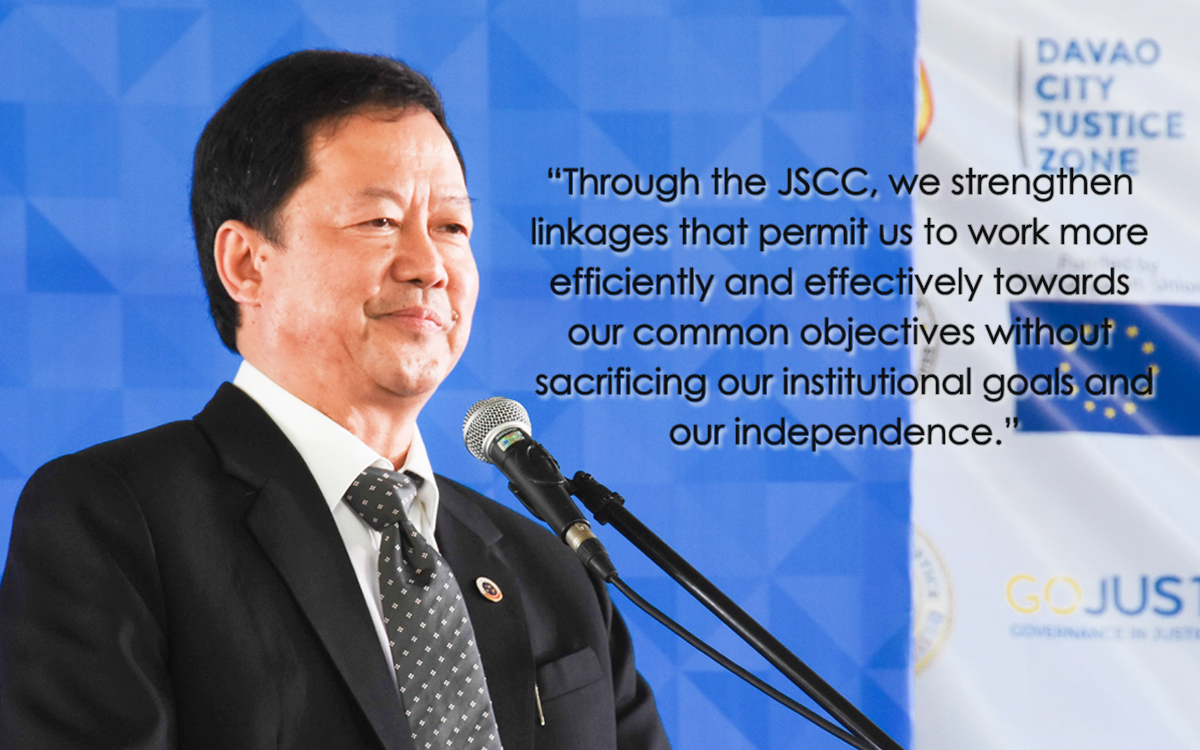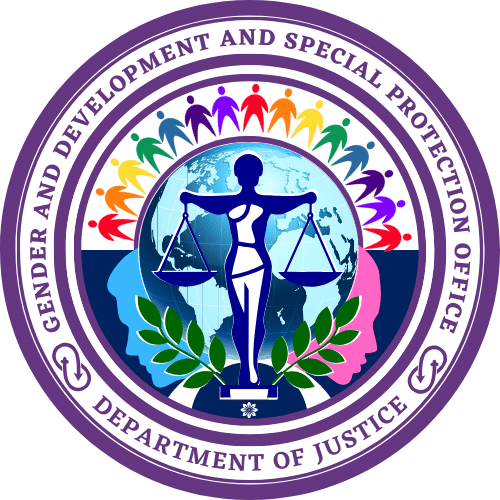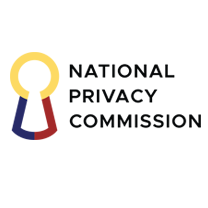Last week, the three principals of the Justice Sector Coordinating Council (JSCC) met to, among others, approve the launch of Davao City as a Justice Zone.
The principals during that meeting likewise approved the JSCC tag line, "Bayanihan para sa Katarungan."
'Bayanihan' is a uniquely Filipino phenomenon.
It lacks any foreign counterpart and as such, is not susceptible to translation.
Its visual depiction consists of a small house resting upon the shoulders of villagers as it is moved from one place to another.
These villagers are relatives, friends and current and future neighbors of the house owners.
Bayanihan embraces the twin concepts of bayan - roughly translated to the village, or even the nation - and of bayani, or hero.
It reminds us that heroism is born not necessarily in battlefields or in crossroads between life and death, but also in commonplace everyday living.
It reminds us that a village, and by extension, a nation, is not confined to the limits of place or geographic space but rises when everyone responds to a collective challenge and is moved by a singular purpose.
It is this collective heroism that allows us to rise beyond our individual weaknesses, lift the heaviest of burdens, and move forward.
It is this concept that JSCC has embraced as our cornerstone strategy in our common quest to deliver justice.
Our common quest to deliver justice - especially criminal justice – is fraught with difficulty.
We implement a plethora of criminal laws enacted as early as the establishment of our Republic.
We enforce these laws over an archipelago of over 7,000 islands spanning over 300,000 square kilometers with very porous coastlines.
We chase those who violate our laws, some of whom not only have the intent but also the wherewithal to evade enforcers and prosecutors, and avoid at all cost being held accountable under our laws.
In the fulfillment of our duties, we face very real constraints - be it shortages in material resources, in time, or imagination.
The knee-jerk solution to these constraints has been to enlarge our respective institutions.
“Our collaboration and cooperation, and the achievements they make possible, confirm the correctness of our belief that together, we are capable of so much more than when we act in isolation.”
Demands for greater funding, more buildings and facilities, and more personnel, among others, have been our one-size fit-all solution to our institutional challenges.
These solutions, however, have their own limits.
Public funds and government resources are not limitless.
And in a tight fiscal environment such as the one in which we operate, additional appropriations in favor of one agency translates to the diminution of resources available to the other.
The JSCC provides an alternative pathway towards our efforts at surmounting institutional difficulties in the administration and delivery of criminal justice.
In the true spirit of bayanihan, JSCC has become an avenue in which we confront problems too heavy for our individual strengths to bear.
Our engagement through the JSCC challenges us to look beyond the narrow confines of our own offices and departments.
It forces us to take a holistic view of our problems and begin to understand that our individual actions impact not only our respective bottom lines, but may likewise adversely affect the capacity of others to effectively achieve theirs.
It compels us to explore avenues for mutual action, collaboration and cooperation.
Through the JSCC, we strengthen linkages that permit us to work more efficiently and effectively towards our common objectives without sacrificing our institutional goals and our independence.
Justice Zones are proof of concept not only of the viability but also of the gains we derive from our collaboration, cooperation and interdependence.
These zones offer empirical evidence that our delivery of criminal justice becomes effective if judges, prosecutors, public defenders and law enforcers gain insight into the operational and logistical challenges that each of us faces.
These insights become the basis for us to address gaps and weaknesses in our respective systems, which in turn embolden us to further strengthen our bonds of cooperation and collaboration.
Our collaboration and cooperation, and the achievements they make possible, confirm the correctness of our belief that together, we are capable of so much more than when we act in isolation.
They also encourage us to aim higher, and to propose creative changes in the way we do things, in the hope that the reforms we put in place could yield higher dividends for our entire criminal justice system.
One such reform proposes to institutionalize a criminal investigation system where the investigating prosecutor leads law enforcers in case build-up, and files an information in court where prima fade evidence exists.
Under this proposed set-up, the court shall conduct a preliminary hearing to determine, based on clear and convincing proof, whether the case may proceed to trial.
This set-up drastically departs from our current practice where the prosecutor passively presides over an adversarial proceeding, known as preliminary investigation, and plays no role in case build-up.
It likewise heightens the standard of proof required for criminal cases to proceed to trial.
It replaces mere probable cause - which induces a reasonably prudent man to believe that a crime has been committed and that the respondent is probably guilty thereof - with the higher standard of clear and convincing evidence.
Clear and convincing evidence is that amount of evidence which establishes not only mere probability, but a high or great probability, of the existence of asserted facts constituting a criminal offense.
This proposal presents both exciting possibilities and formidable challenges.
By placing prosecutors at the fulcrum of case build-up, we effectively remove the iron wall that separates criminal investigation from preliminary investigation.
The merger of these two tiers of "investigation" should speed up the resolution of criminal complaints.
More importantly, the imposition of the standard of proof of clear and convincing evidence would not only help de-clog our criminal court dockets; it would also ensure that trial will be reserved for an accused against whom hard evidence exists.
It would insulate many respondents from frivolous criminal complaints.
Nevertheless, this proposed criminal investigation set-up is not without challenges.
Beyond the usual concerns on personnel and institutional capacity, the far-reaching changes that this proposal entails to our current rules of practice and pleading raise questions as to which branch of government is constitutionally vested with authority to put it in motion.
More poignantly, since the proposal affects not only the functioning of the courts but also of law enforcers and prosecutors, will either
Congressional or judicial action be sufficient?
These questions, among others, make us pause.
But it is precisely for complicated and intractable problems such as these that the JSCC exists.
It exists to ensure that those seemingly complex problems attendant to the birth of great ideas will, in the hands of the best and well-intentioned among us, have at least a fighting chance at becoming real.
It exists so that those of us who believe in causes larger than ourselves can congregate and lend passion and strength toward their realization.
The JSCC has chosen Davao City as the next Justice Zone in our country.
And in so doing, the Chief Justice, the Secretary of the Interior and Local Government, and myself -- as principals of the JSCC – implore every law enforcer, prosecutor, public defender, judge, and all those who work in the justice sector of this city, to confirm anew our belief that together, we can surmount the most difficult of challenges.
Nawa'y ating mapasinayaan dito so inyong lungsod ang tunay no bayanihan para so katarungan.
Thank you and good morning.








